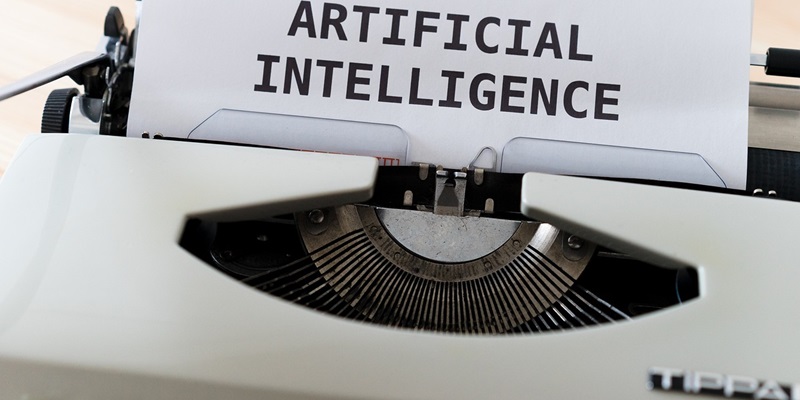Artificial Intelligence (AI) stands at the crossroads of history, wielding the power to both illuminate ancient mysteries and challenge historical authenticity. Its remarkable capabilities, exemplified by the decoding of charred Herculaneum scrolls, reveal untapped potential to reshape historical scholarship. However, AI also raises alarms about the integrity of historical narratives, as its influence could distort our collective memory. This complex relationship between AI and history thus presents a paradox of technological advancement with the promise to redefine how we interpret bygone eras and the peril of compromising the truthfulness of our past. As AI continues to penetrate the realm of historical analysis, the cautious balance between embracing its analytical prowess and guarding against narrative alterations becomes increasingly crucial.
AI as a Catalyst in Deciphering History
The quest to unravel ancient secrets has been bolstered by AI, as shown in the monumental task of interpreting the Herculaneum scrolls. Thanks to the invention of sophisticated machine learning algorithms, texts that were once mere relics have been given new life, illuminating the philosophical thought of ancient times. Beyond the scrolls, AI’s prowess extends to diverse archaeological contexts, enhancing our capability to piece together fragmented aspects of human history.
AI does not just aid in the translation and restoration but also allows researchers to classify artifacts with unmatched precision. The past, in its fragmented form, can be reassembled, providing historians with a richer tapestry of our ancestors’ lives. In doing so, artificial intelligence is not only a tool for discovery but also a bridge connecting us with antiquated epochs and cultures.
AI-Driven Historical Interpretation: The Promise and the Peril
AI’s capacity to assimilate vast cultural contexts and reinterpret them through its algorithms brings forth a potential paradigm shift in how history is understood. This technology may redefine the parameters of historical interpretation, offering new layers of insight into ancient texts and artifacts. However, as acclaimed historians like Yuval Noah Harari have warned, this same capacity holds peril. If left unchecked, AI could initiate a culture of historical narratives that diverge from human consensus, questioning the very foundation of our shared past.
The risk of AI not just supplementing but commandeering the historical narrative is real. Digital integrity has become a rallying cry for those who seek to maintain an untouched backstory for humanity. Projects like Microsoft’s Project Silica offer a beacon of hope, a testament to the possibility of preserving our heritage in a form impervious to digital reinterpretation, a reminder that the essence of history must remain human at its core.
Navigating a New Epoch of Historical Investigation
Navigating the complexities of the digital age, historians are increasingly reliant on AI. As this partnership deepens, so does the urgency to enforce robust standards and regulations to safeguard against AI’s manipulation of history. The development of projects aimed at preserving historical authenticity is a testament to this need, with Project Silica pioneering the effort to ensure that historical records are kept pure and unalterable for millennia to come.
In this new epoch, where deepfakes and AI-generated content constantly blur the lines of reality, it is imperative that the guardians of history remain vigilant. Establishing clear and stringent guidelines for the use of AI in historical contexts is critical to ensure future generations inherit a past that is as accurate and untainted as possible.
The Future of Historical Authenticity in an AI-Dominated World
Balancing the benefits of AI with the need to protect our historic legacy is delicate. As AI’s influence grows, it’s crucial we safeguard the truth of our human journey. Protecting our shared past’s authenticity while leveraging AI to enhance our comprehension of it stands as a significant current challenge.
AI’s tools should be used with the utmost care. In this technological era, we must be vigilant to ensure that AI aids in deepening our insight into history, not obscuring it. It’s our collective responsibility to make sure that as technology progresses, it becomes a beacon that sheds light on our heritage, instead of a veil that dims its reality. The interplay between AI’s potential and historical preservation requires our attention and action to guarantee that our ancestors’ legacies are not only remembered but rightfully understood and portrayed.
Crafting a Responsible Path Forward With AI
At this pivotal moment, it is clear that AI holds both the key to untold historical knowledge and the potential to unravel the fabric of our understanding. It is up to us to shape AI’s role in the historical arena responsibly. By exercising caution and upholding the principles of truth and authenticity, we can ensure that AI serves as an instrument for enlightenment, not deception.
We must forge a path where AI and history complement each other, where the stories of bygone eras are told with integrity, enriched rather than reimagined by artificial intelligence. It is a call to all who harness this technology—historians, technologists, and policymakers alike—to guide AI’s journey through our past with an unwavering commitment to the truth. Only then can we confidently embrace the promise that AI holds for our understanding of history.

